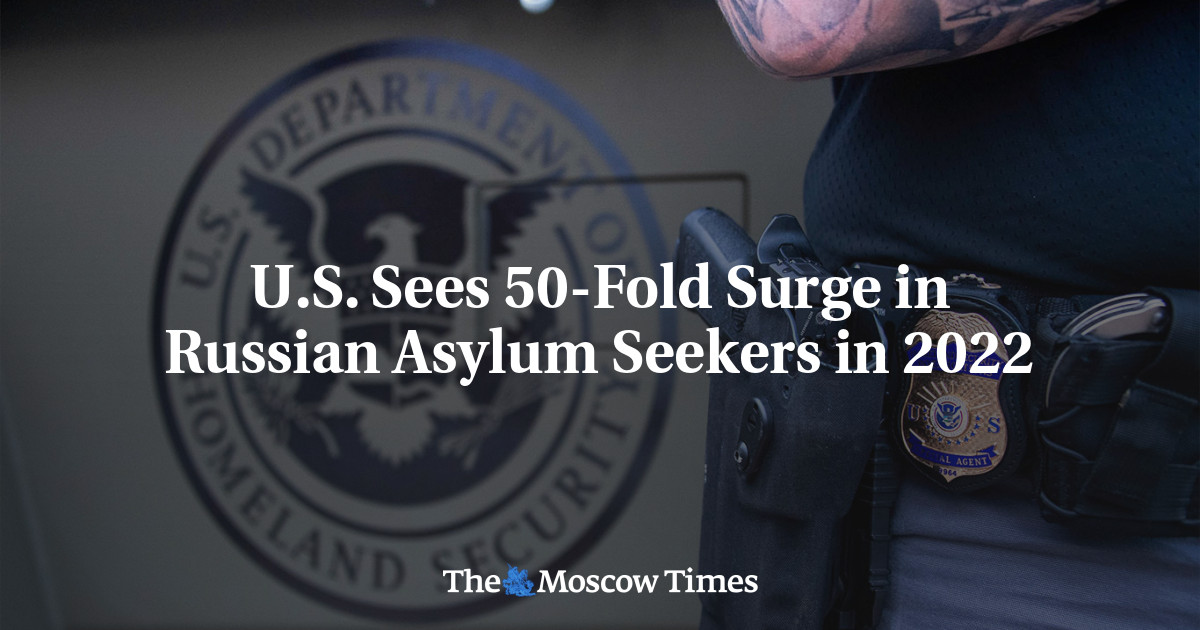
The United States has seen a 4,500% rise in asylum requests from Russian nationals this year as Russia’s war in Ukraine has forced critics to flee the country, The New York Times reported Monday.
U.S. authorities processed 21,763 Russian asylum requests in October 2021-September 2022, compared with just 467 in the 2020 fiscal year, according to the publication.
October 2022, the first full month after President Vladimir Putin announced a “partial” mobilization of reservists, saw nearly 4,000 Russian asylum seekers enter the U.S.
Russian asylum seekers and their lawyers interviewed by the newspaper said they faced mistreatment in immigration detention centers while awaiting their cases in court.
“Proportionately, compared to people from other countries, there are more Russians being sent to detention,” immigration lawyer Svetlana Kaff told NYT.
Boris Shevchuk, a doctor who crossed the U.S.-Mexican border illegally with his wife in late April, described being knocked to the ground by a guard and suffering a head injury while being transferred to escape threats from another detainee.
“I came to realize that I had left Russia for a place that was just like Russia,” Shevchuk said.
His wife Maria Shemyatina was found unconscious in her room in a separate Immigration and Customs Enforcement (ICE) processing center. Shemyatina was diagnosed with an unspecified neurological problem and sent back to detention despite demands by her lawyer for her immediate release to “preserve her life.”
The couple, who were held in separate facilities in rural Louisiana, reunited in early November after volunteers raised their combined $20,000 bond set by ICE.
Alexander Balashov, a former volunteer for jailed Kremlin critic Alexei Navalny, said immigration officers told him and other detainees that they had no rights because they crossed the border illegally.
“The whole time I was there, they treated us like garbage,” his wife Olga Nikitina told NYT.
“It would have been more humane to be shot dead at the border than to be held in prison so long,” Ivan Sokolovski said after spending seven months in detention and losing his asylum case.
ICE told The New York Times that it was “firmly committed to the health and welfare of all those in its custody” but declined to discuss individual cases.